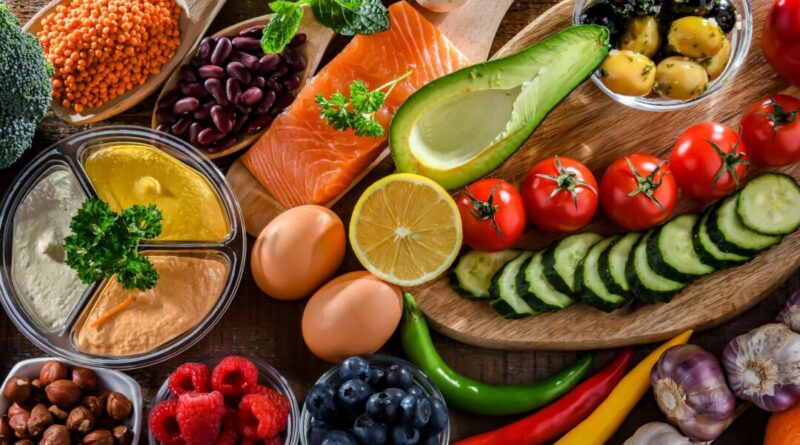Consuming a Fiber-Rich Diet Along with Healthy Fats May Lower Cancer Risk
The researchers found numerous direct correlations between poor dietary choices and digestive cancers, indicating the need for further research.
Recent research from Flinders University suggests that diets rich in healthy fats and vegetables, with limited consumption of unhealthy foods, may reduce the risk of developing bowel and other cancers.
Studies have shown that diets abundant in fruits, vegetables, whole grains, legumes, fish, and dairy can lower the risk and improve outcomes of gastrointestinal (GI) cancers. Conversely, unhealthy dietary habits that include high amounts of red and processed meats, fast foods, refined grains, alcohol, and sugary drinks are linked to an increased risk of GI cancers.
Gastrointestinal (GI) cancer encompasses various cancers affecting the digestive system, such as the esophagus, liver, stomach, gallbladder, pancreas, colon, and rectum, accounting for a significant portion of cancer cases and deaths globally.
“Notably, we found that high-fiber foods like fruits and vegetables promote healthy gut bacteria that can reduce inflammation,” he stated.
“The emphasis on fiber and healthy fats should be a fundamental part of everyone’s diet.”
Prevention of Bowel Cancer
Food choices rich in fiber and unsaturated fatty acids from vegetables, nuts, seeds, and certain oils may help reduce the risk of developing colorectal cancer (CRC), also known as bowel cancer.
Melaku emphasized that public health initiatives could focus on increasing access to and awareness of such foods to mitigate cancer risks.
While dietary patterns may not affect survival outcomes once CRC occurs, promoting healthy eating habits can significantly contribute to cancer prevention strategies.
He added, “As understanding of bowel cancer increases, our research serves as a timely reminder of the role of nutrition in disease prevention. By adopting healthy eating practices, we can proactively safeguard our long-term health.”
How Fiber and Healthy Fats Help?
Fiber supports beneficial gut bacteria, reduces inflammation critical in mitigating CRC risk, and dilutes carcinogens in the colon, promoting regular bowel movements and lowering cancer risk.
Melaku highlighted that high fiber and unsaturated fatty acids might also assist in preventing other diseases.
Support for Diet
The World Cancer Research Fund and Cancer Council NSW recommend a diet rich in fruits, vegetables, whole grains, fish, legumes, and dairy, while discouraging excessive consumption of red and processed meats, fast food, ultra-processed food, and sugary drinks.
Melaku stressed, “Our findings reinforce existing guidelines and point out dietary choices that can actively protect against diseases like upping fiber intake.”
“Adopting a healthy diet is a simple way to enhance overall health and reduce disease risks, including cancers. Our studies demonstrate the importance of nutrition education and promoting healthy eating patterns in reducing GI cancer risks and improving patient outcomes,” Melaku added.
Need for Further Research
Although the results are promising, study author Associate Professor Amy Reynolds emphasized the need for more focused research on nutrition in clinical settings using nutritional biomarkers.
Nutritional biomarkers, measurable indicators of dietary intake or nutrient status like fiber density or fatty acid profiles, provide insights into biological pathways influenced by diet, help quantify dietary impact, reveal mechanisms, and personalize recommendations.
Melaku suggested, “By correlating nutrient levels to cancer risk, we can comprehend how specific dietary components contribute to CRC prevention.”



